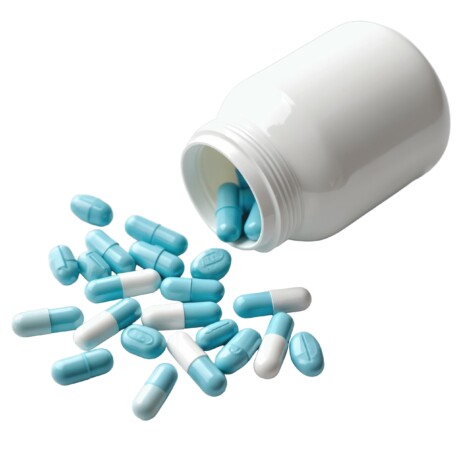Elevate Your Health Journey
Hormone Optimization FAQs for Women: Answers to Common Questions
Navigating your hormonal health can bring up a lot of questions. We've compiled answers to some of the most common inquiries we receive from women just like you, providing the clarity you need to take the next step with confidence.
About Hormonal Imbalance & Symptoms
-
What is a hormone imbalance in women?
A hormone imbalance occurs when your body has too much or too little of a key hormone like estrogen, progesterone, testosterone, or thyroid hormone. Since these hormones regulate everything from mood and metabolism to sleep and sex drive, even a small imbalance can cause noticeable symptoms like fatigue, weight gain, hot flashes, and anxiety.
-
At what age do women's hormone levels start to decline?
While menopause is the most well-known transition, hormonal decline often begins much earlier. Many women start to experience fluctuations and a drop in progesterone and testosterone during perimenopause, which can start in their late 30s or early 40s.
-
Are my symptoms just a normal part of aging?
While hormonal decline is a natural part of aging, the disruptive symptoms that come with it, like severe fatigue, debilitating hot flashes, anxiety, and painful intercourse, are not something you have to accept. These are signs of a treatable medical condition. Hormone optimization is about improving your quality of life, not just accepting a decline.
-
Can stress and poor diet really affect my hormones?
Absolutely. Chronic stress increases cortisol, which can suppress progesterone and disrupt your entire endocrine system. Similarly, diets lacking essential nutrients like B vitamins, magnesium, and healthy fats impair your body's ability to manufacture and balance hormones. This is why the EvexiPEL Method takes a whole-body approach.
About the Causes of Hormonal Imbalance
-
What's the difference between perimenopause and menopause?
Perimenopause is the transitional period before menopause, which can last for several years. During this time, hormone levels fluctuate unpredictably, causing symptoms like irregular periods, mood swings, and sleep issues. Menopause is officially diagnosed after you have gone 12 consecutive months without a period, marking the end of your reproductive years.
-
I had a hysterectomy. Do I still need hormone therapy?
It depends. If your ovaries were removed during the hysterectomy (oophorectomy), your body immediately enters surgical menopause, and hormone therapy is often essential for managing symptoms and protecting long-term health. If your ovaries were left in place, they might still experience reduced function, leading to an earlier onset of menopause. A consultation with a provider can determine your specific needs.
-
How does PCOS cause hormonal imbalance?
Polycystic Ovary Syndrome (PCOS) is a complex condition often driven by insulin resistance and an excess of androgens (like testosterone). This disrupts the delicate balance of estrogen and progesterone, leading to irregular ovulation, menstrual cycle issues, acne, and metabolic challenges.
About Hormone Imbalance Testing
-
Why do I need a blood test? Can't you tell from my symptoms?
While your symptoms provide crucial clues, they can overlap with many different conditions. Advanced lab testing is the only way to get a precise, objective measurement of your hormone levels. This data-driven approach allows your provider to identify the root cause of your symptoms and create a safe, effective, and truly personalized treatment plan. We test, we don't guess.
-
What hormones do you test for?
Our providers use comprehensive lab panels that go beyond basic checks. Depending on your symptoms, testing may include estrogen, progesterone, testosterone, DHEA, a full thyroid panel (TSH, Free T3, Free T4), cortisol levels to assess adrenal health, and key metabolic markers like insulin.
About HRT & Pellet Therapy
-
What is the difference between synthetic and hormones?
Bioidentical hormones are molecularly identical to the hormones your body produces naturally. Synthetic hormones are chemically altered and are not a perfect match. We believe hormones offer a more natural and effective way to restore balance because they fit your body's hormone receptors perfectly.
-
Is hormone pellet therapy safe?
When prescribed and administered by a trained medical provider, hormone pellet therapy has a long track record of safety and efficacy. EvexiPEL is committed to the highest standards of provider training and uses only reputable, FDA-registered, and PCAB-accredited compounding pharmacies to ensure product quality and purity.
-
How long does the pellet insertion procedure take, and is it painful?
The procedure is quick, typically lasting only a few minutes. Your provider will numb the insertion area (usually the upper hip or buttock), so discomfort is minimal. Most women report feeling little to nothing during the process.
-
How long do the pellets last?
For women, hormone pellets typically last between 3 and 5 months, depending on your individual metabolism and activity level.
About Peptide Therapy & Nutraceuticals
-
What is peptide therapy, and how does it help women?
Peptides are small proteins that act as signaling molecules in the body. Peptide therapy uses these molecules to stimulate specific functions, such as enhancing fat metabolism, promoting collagen for healthier skin, improving sleep quality, or boosting tissue repair. It's an innovative therapy that complements hormone optimization for whole-body wellness.
-
What are nutraceuticals?
Nutraceuticals are clinical-grade supplements designed to provide targeted nutritional support. An EvexiPEL Provider may recommend specific nutraceuticals to address nutrient deficiencies, support hormone production, manage stress, or improve metabolic health, all of which are crucial for achieving optimal balance. They can be conveniently purchased through your trained provider.
About the Process
-
How quickly will I see results?
While every woman is different, many begin to notice initial improvements in sleep, mood, and energy within a few weeks. More significant changes in hot flashes, body composition, and libido can become more apparent over the first few months as your body achieves optimal balance.
-
Is hormone optimization therapy covered by insurance?
Coverage can vary widely between insurance providers. While some may offer partial reimbursement, pellet therapy is often a self-pay service. We are happy to provide you with the necessary documentation to submit to your insurance company. We recommend checking with your plan provider directly.
-
What if I have more questions?
The best way to get personalized answers is to schedule a consultation with a trained EvexiPEL Provider. They can review your health history and provide tailored recommendations for your unique situation.












